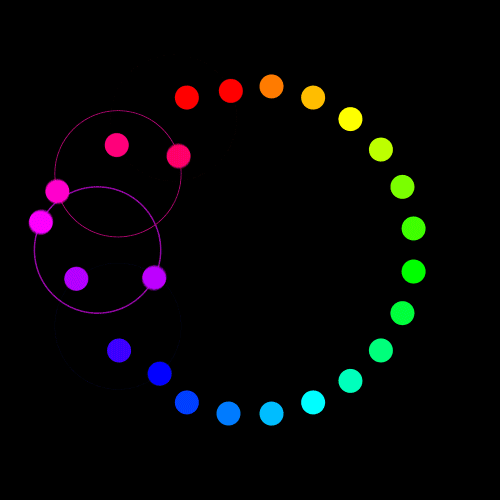简介
Summary:
No annotation info exists for this item.
目录
Table Of Contents:
List of Figures and tables xi
Acknowledgements xiii
List of abbreviations xv
Introduction 1(3)
Main issues of translation studies 4(14)
The concept of translation 4(1)
What is translation studies? 5(2)
A Brief history of the discipline 7(2)
The Holmes/Toury `map' 9(4)
Developments since the 1970s 13(2)
Aim of this book and a Guide to chapters 15(3)
Translation theory before the twentieth century 18(18)
Introduction 19(1)
`Word-for-word' or `sense-for-sense'? 19(4)
Martin Luther 23(1)
Faithfulness, spirit and truth 24(1)
Early attempts at systematic translation theory: Dryden, Dolet and Tytler 25(3)
Schlieiermacher and the Valorization of the foreign 28(1)
Translation theory of the nineteenth and early twentieth centuries in britain 29(1)
Towards Contemporary translation theory 30(6)
Equivalence and equivalent effect 36(19)
Introduction 36(1)
Roman Jakobson: the Nature of linguistic meaning and equivalence 37(1)
Nida and the science of translating 38(6)
Newmark: semantic and communicative translation 44(2)
Koller: Korrespondenz and Aquivalenz 46(2)
Later developments in equivalence 48(7)
Studying translation product and Process 55(16)
Introduction 56(1)
Vinay and Darbelnet's model 56(4)
Catford and translation `shifts' 60(1)
Czech writing on translation shifts 61(2)
The cognitive process of translation 63(8)
Functional theories of translation 71(18)
Introduction 72(1)
Text type 72(5)
Translatiorial action 77(2)
Skopos theory 79(3)
Translation-oriented text analysis 82(7)
Discourse and register analysis approaches 89(18)
Introduction 89(1)
The Hallidayan Model of language and discourse 90(1)
House's model of translation quality assessment 91(3)
Baker's text and pragmatic level analysis: a coursebook for translators 94(4)
Hatim and Mason: the semiotic level of context and discourse 98(2)
Criticisms of discourse and register analysis approaches to translation 100(7)
Systems theories 107(17)
Introduction 107(1)
Polysystem theory 108(2)
Toury and descriptive translation studies 110(7)
Chesterman's translation norms 117(1)
Other models of descriptive translation studies: Lambert and van gorp and the Manipulation School 118(6)
Cultural and ideological turns 124(18)
Introduction 124(1)
Translation as rewriting 125(1)
Translation and gender 125(6)
Postcolonial translation theory 131(4)
The ideologies of the theorists 135(1)
Other Perspectives on translation and ideology 136(6)
The role of the translator: visibillity, ethics and sociology 142(20)
Introduction 143(1)
The Cultural and Political agenda of translation 143(8)
The power network of the publishing industry 151(1)
Discussion of Venuti's work 152(2)
The reception and reviewing of translations 154(3)
The sociology and historiography of translation 157(5)
Philosophical theories of translation 162(17)
Introduction 162(1)
Steiner's hermeneutic motion 163(4)
Ezra Pound and the energy of language 167(2)
The task of the translator: Walter Benjamin 169(1)
Deconstruction 170(9)
New directions from the new media 179(18)
Introduction 179(1)
Corpus-based translation studies 180(2)
Audiovisual translation 182(9)
Localization and globalization 191(6)
Concluding remarks 197(3)
Appendix: internet links 200(2)
Notes 202(6)
Bibliography 208(18)
Index 226
List of Figures and tables xi
Acknowledgements xiii
List of abbreviations xv
Introduction 1(3)
Main issues of translation studies 4(14)
The concept of translation 4(1)
What is translation studies? 5(2)
A Brief history of the discipline 7(2)
The Holmes/Toury `map' 9(4)
Developments since the 1970s 13(2)
Aim of this book and a Guide to chapters 15(3)
Translation theory before the twentieth century 18(18)
Introduction 19(1)
`Word-for-word' or `sense-for-sense'? 19(4)
Martin Luther 23(1)
Faithfulness, spirit and truth 24(1)
Early attempts at systematic translation theory: Dryden, Dolet and Tytler 25(3)
Schlieiermacher and the Valorization of the foreign 28(1)
Translation theory of the nineteenth and early twentieth centuries in britain 29(1)
Towards Contemporary translation theory 30(6)
Equivalence and equivalent effect 36(19)
Introduction 36(1)
Roman Jakobson: the Nature of linguistic meaning and equivalence 37(1)
Nida and the science of translating 38(6)
Newmark: semantic and communicative translation 44(2)
Koller: Korrespondenz and Aquivalenz 46(2)
Later developments in equivalence 48(7)
Studying translation product and Process 55(16)
Introduction 56(1)
Vinay and Darbelnet's model 56(4)
Catford and translation `shifts' 60(1)
Czech writing on translation shifts 61(2)
The cognitive process of translation 63(8)
Functional theories of translation 71(18)
Introduction 72(1)
Text type 72(5)
Translatiorial action 77(2)
Skopos theory 79(3)
Translation-oriented text analysis 82(7)
Discourse and register analysis approaches 89(18)
Introduction 89(1)
The Hallidayan Model of language and discourse 90(1)
House's model of translation quality assessment 91(3)
Baker's text and pragmatic level analysis: a coursebook for translators 94(4)
Hatim and Mason: the semiotic level of context and discourse 98(2)
Criticisms of discourse and register analysis approaches to translation 100(7)
Systems theories 107(17)
Introduction 107(1)
Polysystem theory 108(2)
Toury and descriptive translation studies 110(7)
Chesterman's translation norms 117(1)
Other models of descriptive translation studies: Lambert and van gorp and the Manipulation School 118(6)
Cultural and ideological turns 124(18)
Introduction 124(1)
Translation as rewriting 125(1)
Translation and gender 125(6)
Postcolonial translation theory 131(4)
The ideologies of the theorists 135(1)
Other Perspectives on translation and ideology 136(6)
The role of the translator: visibillity, ethics and sociology 142(20)
Introduction 143(1)
The Cultural and Political agenda of translation 143(8)
The power network of the publishing industry 151(1)
Discussion of Venuti's work 152(2)
The reception and reviewing of translations 154(3)
The sociology and historiography of translation 157(5)
Philosophical theories of translation 162(17)
Introduction 162(1)
Steiner's hermeneutic motion 163(4)
Ezra Pound and the energy of language 167(2)
The task of the translator: Walter Benjamin 169(1)
Deconstruction 170(9)
New directions from the new media 179(18)
Introduction 179(1)
Corpus-based translation studies 180(2)
Audiovisual translation 182(9)
Localization and globalization 191(6)
Concluding remarks 197(3)
Appendix: internet links 200(2)
Notes 202(6)
Bibliography 208(18)
Index 226
- 名称
- 类型
- 大小
光盘服务联系方式: 020-38250260 客服QQ:4006604884
云图客服:
用户发送的提问,这种方式就需要有位在线客服来回答用户的问题,这种 就属于对话式的,问题是这种提问是否需要用户登录才能提问
Video Player
×
Audio Player
×
pdf Player
×



